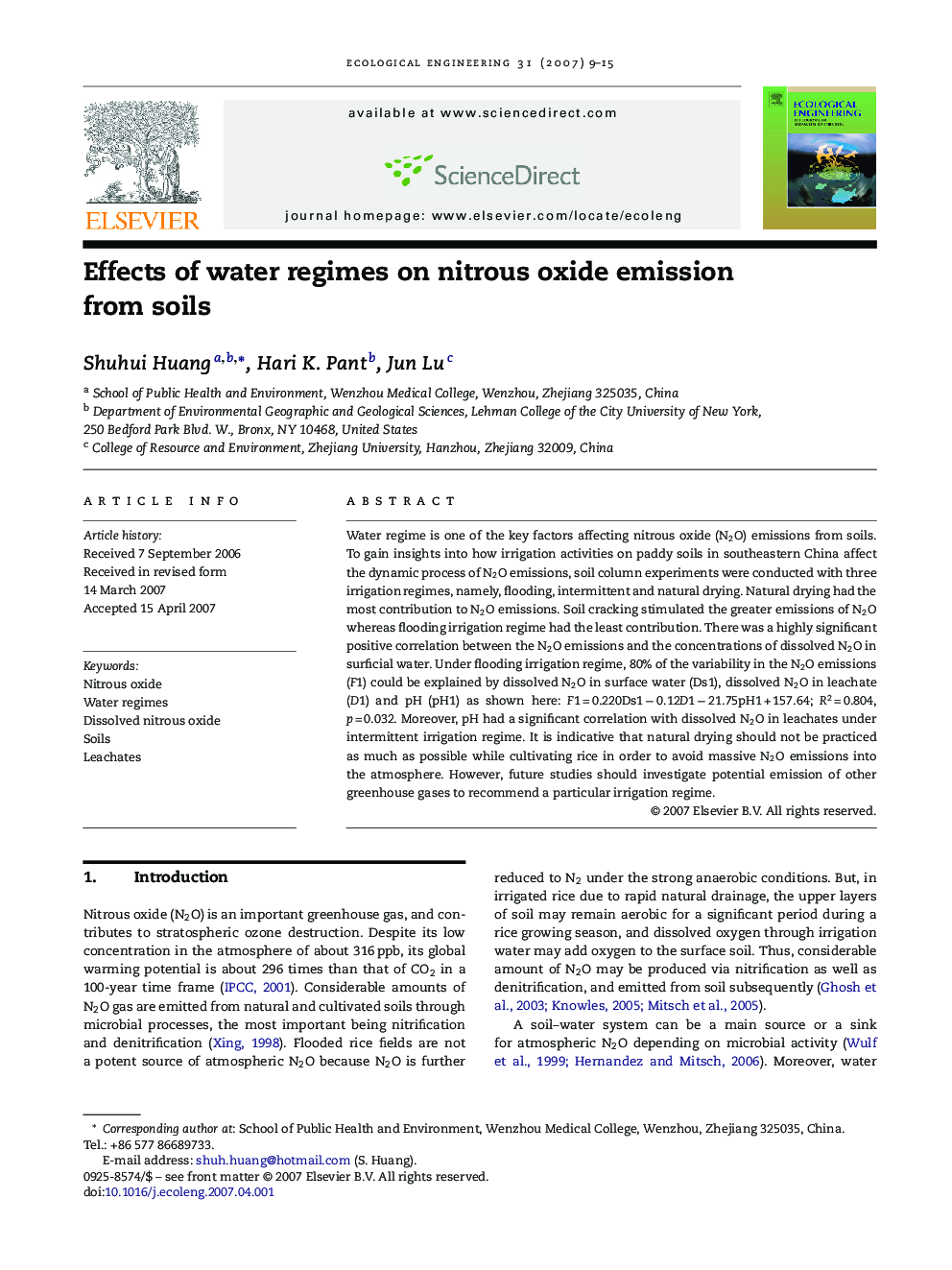| Article ID | Journal | Published Year | Pages | File Type |
|---|---|---|---|---|
| 4391063 | Ecological Engineering | 2007 | 7 Pages |
Water regime is one of the key factors affecting nitrous oxide (N2O) emissions from soils. To gain insights into how irrigation activities on paddy soils in southeastern China affect the dynamic process of N2O emissions, soil column experiments were conducted with three irrigation regimes, namely, flooding, intermittent and natural drying. Natural drying had the most contribution to N2O emissions. Soil cracking stimulated the greater emissions of N2O whereas flooding irrigation regime had the least contribution. There was a highly significant positive correlation between the N2O emissions and the concentrations of dissolved N2O in surficial water. Under flooding irrigation regime, 80% of the variability in the N2O emissions (F1) could be explained by dissolved N2O in surface water (Ds1), dissolved N2O in leachate (D1) and pH (pH1) as shown here: F1 = 0.220Ds1 − 0.12D1 − 21.75pH1 + 157.64; R2 = 0.804, p = 0.032. Moreover, pH had a significant correlation with dissolved N2O in leachates under intermittent irrigation regime. It is indicative that natural drying should not be practiced as much as possible while cultivating rice in order to avoid massive N2O emissions into the atmosphere. However, future studies should investigate potential emission of other greenhouse gases to recommend a particular irrigation regime.
